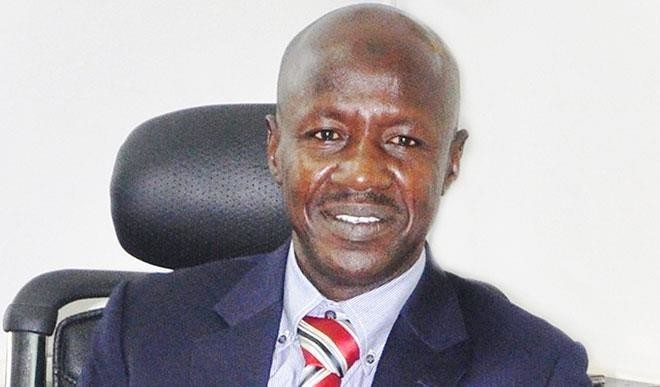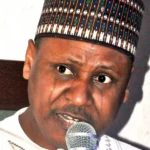The Acting Chairman of the Economic and Financial Crimes Commission (EFCC), Ibrahim Magu, has said the agency is working on protocols to be adopted by African Heads of State to facilitate cross-border tracing and recovery of looted funds.
He spoke on the occasion of his decoration and conferment of Fellowship of the Chartered Institute of Public Resources Management and Politics, Ghana yesterday in Abuja.
He said when the protocols are adopted, anti corruption agencies across the continent may trace and recover funds from other African countries without fear of breaching national territories.
He also said, “The greatest challenge of the anti-corruption war is that corruption fighting back. The fight-back can take any dimension and it is important that we are all prepared all the time for whatever fraudsters may weave and dangle against us. Every exposed fraudster is a wounded lion and you know what a wounded lion can do.
“We have succeeded in creating a culture of caution and carefulness in the handling of financial resources, both in the public and private sectors.
“The consciousness we have created about anti-corruption cannot be quantified in money terms because it is deep, wide and large.
“The costs of fighting corruption may be grave, but the cost of not fighting it is more deadly. This is why we continue to call on every Nigerian to enlist in the anti-graft war. A good war is a war that is waged by the majority for the good of the majority,” he stated.
Magu said his investiture had shown that the whole world is watching what the EFCC is doing, and noted that it showed that international borders and gates are not barriers to the recognition and appreciation of good work.




